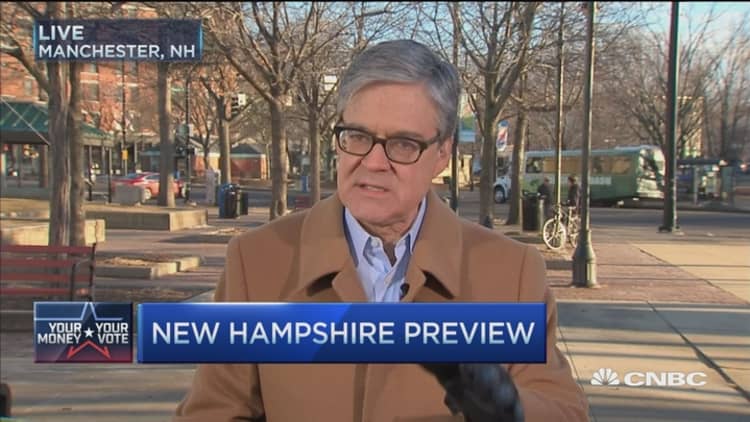
MANCHESTER, N.H. — Voters bring clarity to the fog of campaigns, and Iowans made one thing clear: We'll stay in the fog for quite a while.
Iowa Republicans handed victory to Ted Cruz, humbled Donald Trump and threw a strong lifeline to Marco Rubio. But they hardly settled the Republican race, which here in New Hampshire now provides an opportunity for John Kasich, Jeb Bush and Chris Christie to step up.
Iowa Democrats gave the narrowest of victories to Hillary Clinton, still a strong favorite to win her party's nomination. But the robust showing by her "democratic socialist" challenger Bernie Sanders will only invigorate his supporters here, where he begins the weeklong sprint to primary day with a solid lead.
That means both parties face the prospect of extended slugfests before they can unite their ranks and prepare for a general election that analysts on both sides expect to be close.
Among mainstream Republicans there was palpable relief that Rubio, long considered their most appealing general election candidate, surged to a strong third-place showing not far behind Trump or Cruz. For different reasons, Republicans fear getting thumped in a contest against Clinton with either man leading the ticket.
Yet neither Rubio nor his "establishment" allies can feel sanguine about the path forward. Trump, the leader in New Hampshire and most everywhere else, showed unexpected grace in defeat; if some analysts overestimated his strength before Iowa's caucuses, they may be overestimating the likelihood of his collapse now that the self-proclaimed "winner" has lost.
At the same time, there's no reason to think Cruz will gradually fade into oblivion the way underfunded Iowa winners Mike Huckabee and Rick Santorum did in 2008 and 2012, respectively. Cruz has $18 million in the bank, nearly double Rubio's treasury, and his hard-right ideological profile well matches the Southern states where the post-New Hampshire primary trail leads.
Finally, Rubio faces a passel of mainstream rivals here on terrain better suited than Iowa for them to compete. Ohio Gov. Kasich has moved into second place in some New Hampshire polls, ahead of Rubio. Former Florida Gov. Bush and New Jersey Gov. Christie are bunched relatively closely together with them as well.
Any of them who manages to finish ahead of Rubio in New Hampshire will have a solid argument rebutting party insiders and donors pressing slower drivers in the "establishment" lane to pull over and exit. The more fragmented the race remains, the longer it will last.
The same is true of the Democratic race, even as the exit of former Maryland Gov. Martin O'Malley has left Clinton and Sanders to battle it out one-on-one. The reason Clinton remains likely to prevail is the reassurance her record and policy agenda provide for constituencies that count: Democratic elected officials, donors and minority voters with whom she shares a long history. Few of them want to take the risk of nominating an elderly, less-familiar, less-tested candidate calling for "a political revolution."
Yet Sanders has lit a fire among Democratic liberals, especially young voters, that won't be easy to tame. Indeed, Clinton doesn't want to extinguish it; she would need the strong backing of those voters to prevail in November.
That's a prescription for battles now likely to extend further than leaders of either party would prefer. Yet that's only one of the things Iowa made clear. The other is that, in an election season marked by rank-and-file discontent and alienation, party leaders don't control very much.



